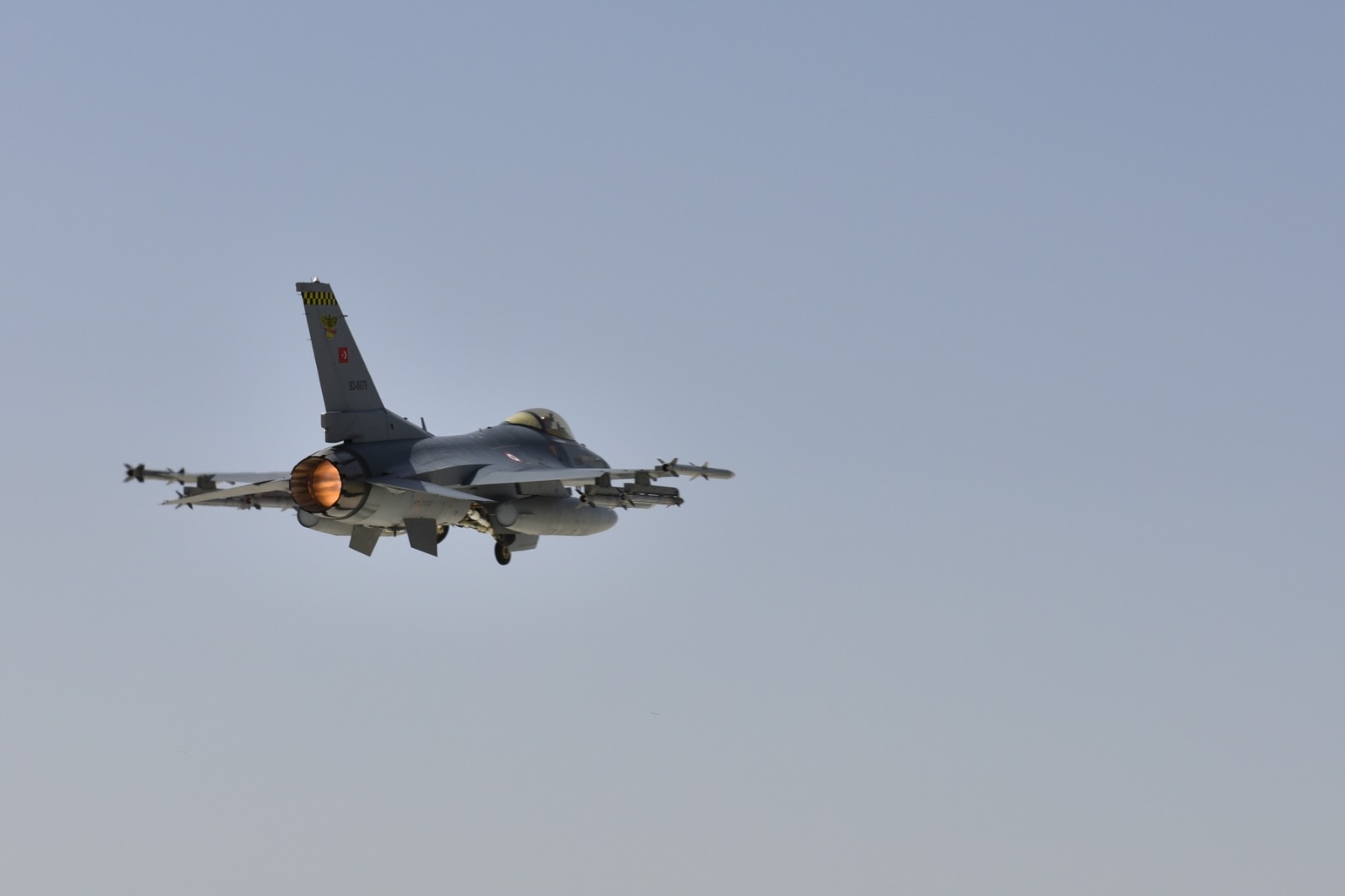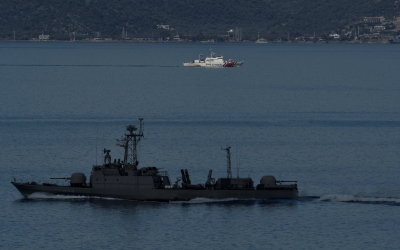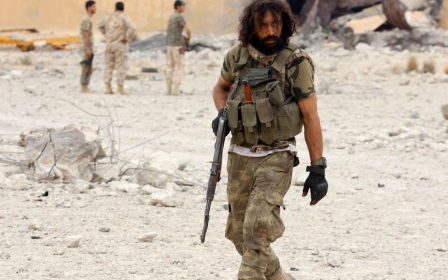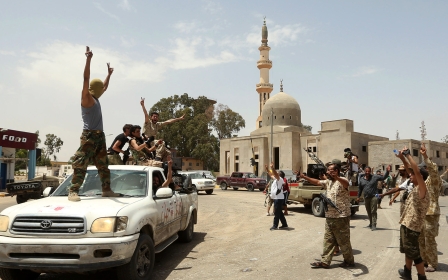Turkey tests military flights to Libya amid reports of establishing bases

Turkey's military conducted an eight-hour long air drill to the Libyan coast on Thursday to show that it could rapidly and easily deploy several F-16s and early warning aircraft to the country if needed, a Turkish official told Middle East Eye.
In a separate formal announcement, Turkey's military reported that its air force and navy jointly conducted "Open Sea Training" in the Eastern Mediterranean, with 17 aircraft involved having taken off from the city of Eskisehir. Eight frigates and corvettes also joined the drill.
"The activity was conducted in international waters, in a route totalling a 2,000km round trip," a second Turkish official told MEE. The drill, which was commanded by the military headquarters back in Turkey, also included airtankers and C-130 military cargo planes.
Meanwhile, Turkish media reported that Ankara will establish two military bases in Libya as part of its security cooperation with the Tripoli-based Government of National Accord (GNA).
The Yeni Safak daily report, referencing regional sources, said the strategic al-Watiya airbase in western Libya will become a drone hub, where armed UAVs and surveillance aircraft will be deployed. The drones will be protected by Turkish air defence systems, it said.
New MEE newsletter: Jerusalem Dispatch
Sign up to get the latest insights and analysis on Israel-Palestine, alongside Turkey Unpacked and other MEE newsletters
Al-Watiya was recaptured by the GNA last month with the help of Turkish military assistance, one of a series of victories against Khalifa Haftar's Libyan National Army (LNA) that has seen the eastern commander's offensive in western Libya crumble.
Despite a UN weapons embargo, Turkey signed a military cooperation deal with the GNA and sent drones, armoured vehicles, Syrian mercenaries and military officers to support the government, which was struggling to fight off Haftar's UAE, Egypt and Russia-backed forces.
Yeni Safa said a second naval base would be established in Misrata, which is crucial for the military supply chain from Turkey.
“Considering the increase of Greek provocations in Eastern Mediterranean, and the strategic importance of naval forces, it is an imperative to maintain the Turkish navy’s presence in the area,” the report said.
Several reports in the Turkish media earlier this week indicated that Ankara plans to contribute to efforts to rebuild Libya once a permanent ceasefire is put in place. The Turkish government also intends to begin oil and gas drilling activities in the country and off its coast in the next few months.
Yeni Safak said that oil company Turkish Petroleum is expected to run the oil facilities in Misrata once the area is totally cleared of LNA forces.
Burhanettin Duran, an expert on international relations who is close to the Turkish government, said in a column on Friday that Turkey should have a four-point plan in Libya to ensure Ankara's interests are protected.
“Bilateral relations between Ankara and Tripoli must be deepened in the areas of security, energy and investment. This should be extended to the drilling activities on land and sea,” he wrote.
“Secondly, the GNA’s control of Sirte and Jufra should be ensured by seizing the oil crescents with the help of Turkish military advise and armed drones.”
Duran added that Turkey has to have a place in the reconstruction efforts and draft a political solution proposal that would satisfy all parties involved, including the GNA's rival Benghazi-based government allied with Haftar.
Middle East Eye delivers independent and unrivalled coverage and analysis of the Middle East, North Africa and beyond. To learn more about republishing this content and the associated fees, please fill out this form. More about MEE can be found here.





